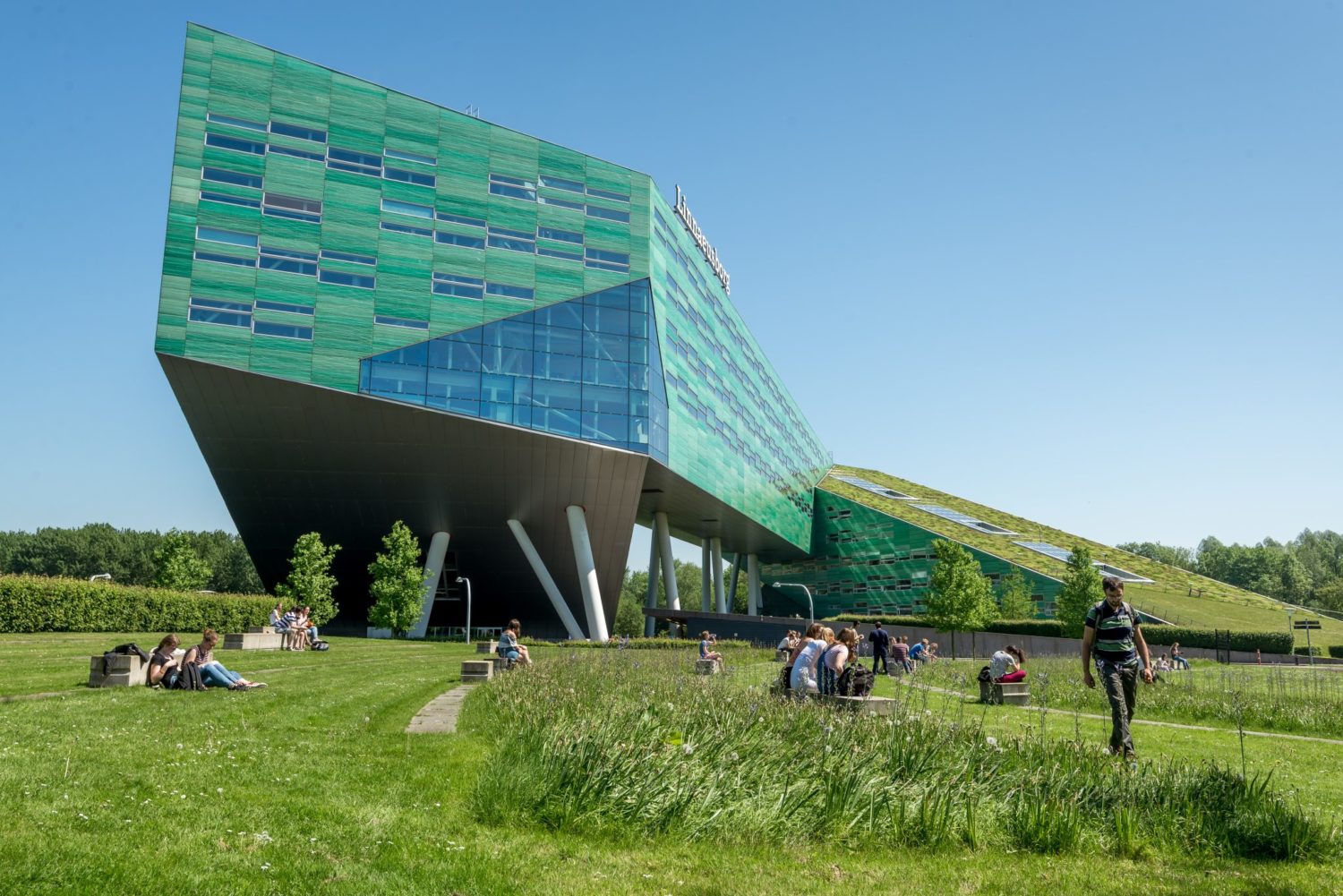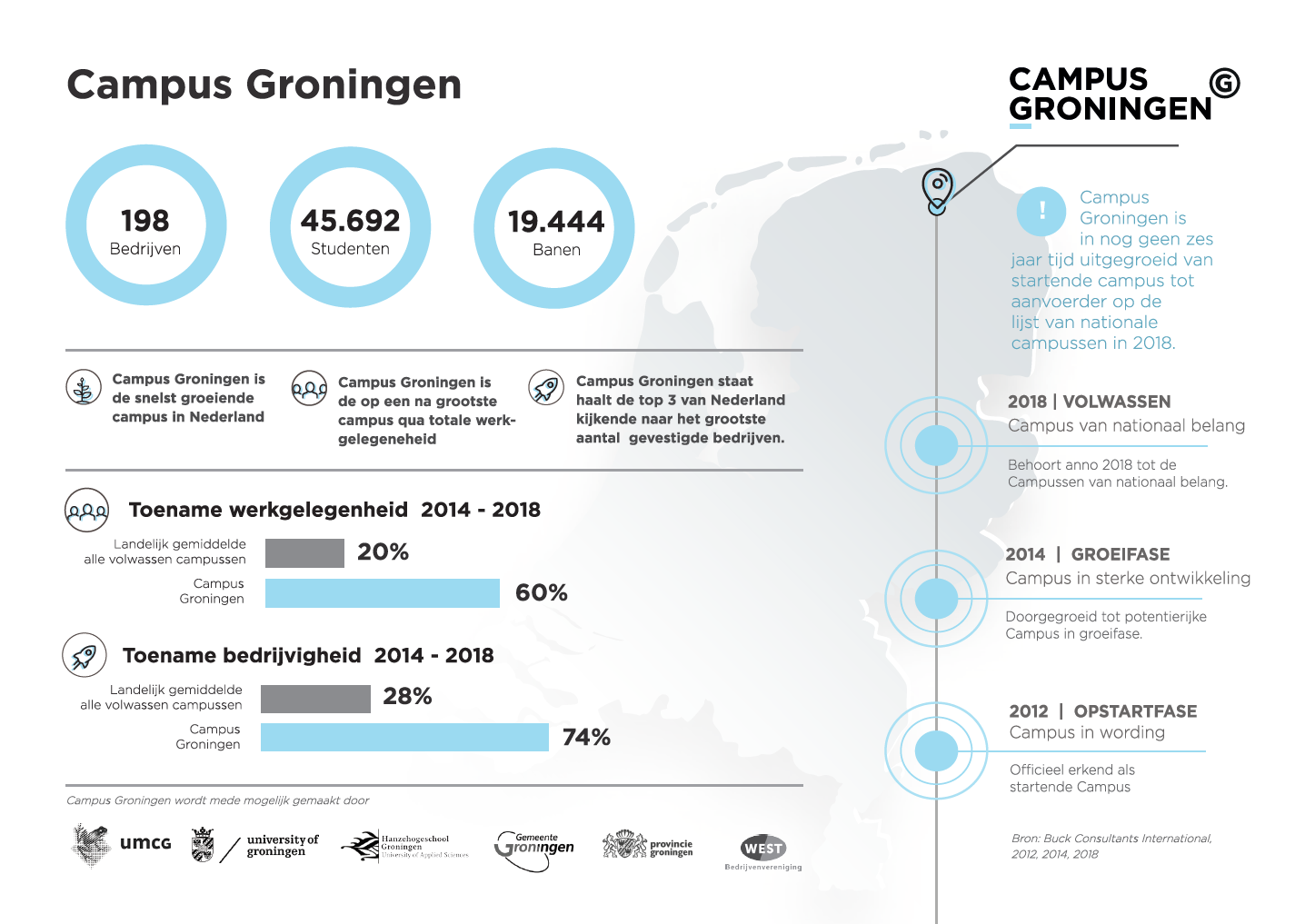In less than six years, Campus Groningen has grown from a start-up campus to one of the largest mature campuses of national importance in 2018. In addition, Campus Groningen is the fastest growing campus in the Netherlands and the second largest campus in terms of total employment. This is according to the report released today by the consulting firm Buck Consultants International (BCI), commissioned by the Ministry of Economic Affairs and Climate and the Network of Knowledge Cities in the Netherlands. "The growth our Campus is in is enormous, Groningen is the place to excel. The report is a great confirmation of this" said Mayor Peter den Oudsten. Deputy Patrick Brouns adds: "Campus Groningen is the epitome of the Groningen way of working together: short lines of communication, innovative and future-proof."
Rural impact
BCI figures show that campuses in the Netherlands are doing well. Campuses are attracting more and more companies and providing 5,700 additional jobs in three and a half years. The growth of companies and employment on campuses has continued unabated in recent years, leading to the conclusion that campuses are a desirable place to locate and a crucial driver of new business activity. Jan de Jeu, member of the Executive Board of the University of Groningen (RUG): "The Campus Research 2018 shows that it pays very much for the Northern Netherlands to invest in Campus Groningen. In a short time, the Campus has developed as a vibrant hub for economic development in the Northern Netherlands at the intersection of research, education and entrepreneurship." Henk Pijlman, Chairman of the Executive Board of Hanze University Groningen (HG) adds: "Campus Groningen is pre-eminently the place where students, teacher-researchers and the business community collaborate on solutions to issues from society."
Groningen campus sought-after business location
In Buck's monitor, Campus Groningen rose from start-up phase in 2012, grower in 2014 to mature campus of national importance in 2018. BCI defines campuses as locations with a concentration of companies and knowledge institutes, where partners work together on research Research & Development and open innovation relationships exist. Campus Groningen meets these conditions, and this is well reflected in the magnet effect of the campus. Not only is the number of companies and startups growing rapidly, from 114 in 2014 to 198 in 2018, employment on campus is also experiencing significant growth.
Ambitions
This ranking encourages Campus Groningen and partners to collaborate further. To exploit the innovative power and economic added value of campuses even further, the report recommends focusing on shared (research) facilities and business premises for start-ups and spin-offs, among other things. This expansion is one of the ambitions for the future that will be implemented at both campus locations in Groningen. Other important pillars included in the report are in the areas of business development, accessibility, knowledge exchange and talent marketing.
How to proceed now that national recognition for our campus has arrived? Edward van der Meer, managing director Campus Groningen concludes with a look to the future: "From Campus Groningen, we are used to working together. From our regional collaborations, our local strength and identity of Campus Groningen, we will be actively seeking to connect on a national level in the near future to generate international impact. We have already started doing that, of course, and so that is the next step that will be seen."
About Campus Groningen
Campus Groningen is the center for innovation, research and business activity in the Northern Netherlands. Campus Groningen has two business locations: Zernike Campus in the north of the city of Groningen and the Healthy Ageing Campus near the UMCG. Campus Groningen is one of the largest and most important campuses in the Netherlands with nearly 200 companies, three knowledge institutions (RUG, UMCG and Hanzehogeschool), over 45,000 students, and a total of over 20,000 jobs. In addition to the three knowledge institutions, the Municipality of Groningen, Business Association WEST and Province of Groningen are also contributing to this innovation engine.


